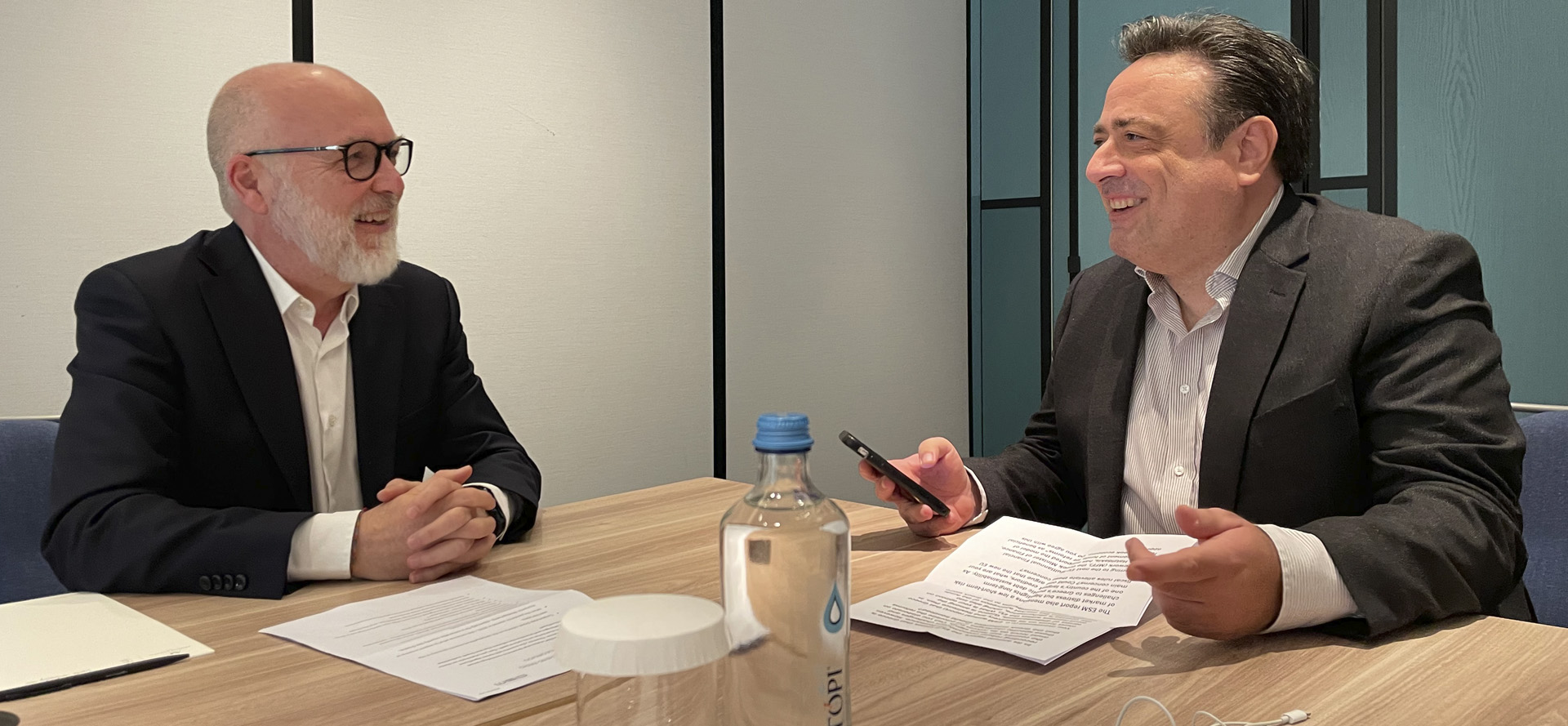Paolo Fioretti in interview with Athens Radio

Interview with Paolo Fioretti, ESM Country Team Coordinator for Greece
Broadcast on Athens Radio
10 July 2024
Interviewer: John Papageorgiou
Athens Radio: Mr Fioretti, thank you for joining us. It's an honour and a pleasure. In each Annual Report, the ESM states that Greece is recording robust economic performance. However, the country still needs reforms, faces challenges. Can you elaborate a bit on those specific challenges and prioritise the reforms that the Greek authorities should front-load?
Paolo Fioretti: First, let me congratulate the Greek citizens. Yesterday, we arrived late. We went out for a quick dinner. It was really a pleasure to see the city so vibrant, full of tourists, people around the streets, in pubs, in restaurants. I remember how Greece was during the pandemic. Athens and all the other capitals. It's really a pleasure.
Yes, in our Annual Report, we said that the recovery is strong. Greece performed very well, recovering from the pandemic, also [recovering] from the previous crisis. It defied the pessimistic expectations because nobody at the time thought that Greece could really recover because they saw that it was a vulnerable country with the economy based mainly on tourism. But Greece recovered well and showed that all the reforms were heading in the right direction.
Is it still vulnerable, and why? It is because it still has the highest debt in proportion to its economy in the euro area. Non-performing loans (NPLs) have been reduced drastically, but they remain the highest and above average. It's still the country which has the lowest productivity rate. We support the reform agenda of the government in all these areas because this is the only way to maintain growth and wealth and well-being for the citizens and the society.
The report mentions that Greece must also focus on its recovery and resilience plan. In terms of disbursements, Greece is among the front-runners within the EU. What is your opinion on the country's performance, taking also into consideration the market absorption of funds, loans, and their potential contribution to Greece's GDP?
The recovery fund is a game changer for the euro area, in particular for Greece. Greece has been best in practice in this first half [of the NGEU programme] in terms of disbursement. I have to say, not to be lenient, that the first half was the easiest one, probably, because it was the moment where you have to introduce reforms, design strategies. The second part can be the most challenging because you have to implement investment projects. This means you have to pay attention to planning, coordinating resources between public and private initiatives, and different areas of the government. You have to coordinate, you have to monitor, and all these activities can be much more challenging.
Let's turn to Greek debt. The ESM report also mentions a low short-term risk but highlights some long-term risks. As one of Greece's largest creditors, what are your main concerns on this? Does the new EU fiscal framework alleviate these concerns?
Let me split the answer in two and focus first on the short term and then on the long term, as you have already highlighted. From a creditor perspective, we don't have so many concerns in the short term because we don't see many concerns in the next five, six years. We see that the economy is growing, and that growth should remain. Job offers are increasing. Tax revenues are flowing. The fiscal position is solid and conservative. It is going in the right direction.
In addition, Greece has maintained a high cash buffer to absorb turbulences, shocks in the market. For all these reasons, we see that rating agencies have started to upgrade the country. In August last year, it returned to investment-grade. That is a great achievement. In the short term, we don't have many concerns.
In the long term, we see that the situation can change a bit, not because we are really concerned, but because there are more uncertainties, and Greece has to prove that it is able to maintain this high growth rate also in the future, in the long term.
In addition, one of the main risks, not only for Greece, but for many European societies, is ageing. What Greece should do is to create a more inclusive job market. What I mean is that at the moment, the participation rate for young people and women is among the lowest in Europe. The reform agenda of the government, this government and future governments, should focus exactly on this and find a way to introduce policy actions in such a way that the market can offer high-paid, better jobs for young people and women.
I would like to turn to the upcoming EU MFF. The Greek Minister of Finance, Kostis Hatzidakis, has supported a model of disbursements of funds for reforms. This could be beneficial for the Greek government. First of all, do you agree with this approach? Do you think that this could be the crucial approach regarding the next MFF?
First of all, we have to explain what MFF is. That is the Multiannual Financial Framework. That is a new approach agreed by the EU to have a connection between reforms and funds with the countries. Overall, I think it's an extremely efficient and good approach. It's working well. It worked well for Greece because it's focusing on removing all the bottlenecks, hurdles to growth. And modernising the country. It's an extremely good and efficient tool, but if it's well-designed, because we need to have a right balance between investments and reforms, ownership by the government, and administrative oversight.
This approach can be extremely effective if it's well-designed, well-implemented, and well-monitored.
Finally, allow me a question on the role of the ESM. The ESM was established to address significant financial challenges within the EU, the pandemic, the Greek crisis, the crisis in the eurozone. Since then, the EU faced and still faces significant challenges. Given the need for resources in the short term and in the long term, how do you see the role of the mechanism in the foreseeable future?
We were created to help our countries, Member States, to prevent and overcome crises. Our mandate is to intervene and help the countries when their financial stability is at risk. So far, I would say we were successful. If we look backward, our interventions were positive. The Member States that benefited from our financial support are among those with the highest rate of growth in the economy. But we have to keep in mind that future crises are different from past crises. We have to adapt our toolkit, as the source of a crisis can change. Today, the main source of crises are geopolitical tensions, cybersecurity, climate, ageing population. We wanted to update our toolkit. The [euro area] ministers, two years ago, gave us the mandate to have a full review of our toolkit, to modernise and adapt. We presented [our analysis] in June in the annual meeting with ministers. Now we are in discussions to see how to implement the conclusions of that review.
Author

Contacts


